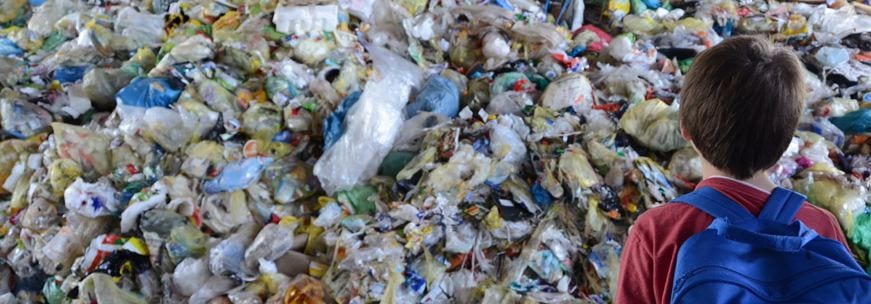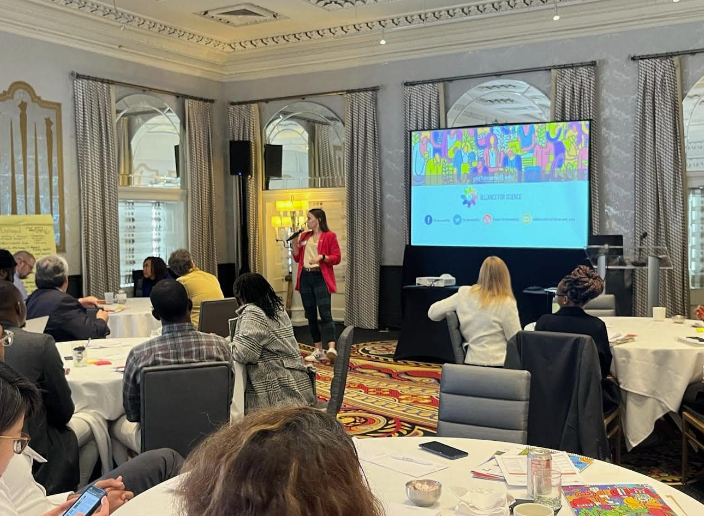This piece is part of a “Double Takeâ€, where two parties argue on either side of a premise. A writer does not necessarily share the view they are arguing; instead, this is an exercise to fully flesh out a discussion.
The premise:
“Single-serve, plastic water bottles should be banned in the United States.â€
I am writing FOR the premise.
Here is a link to my colleague’s article against the premise.
__________________________________________________________________________

The US consumed 14 billion gallons of bottled water last year. 67% of bottled water sold in the US is in single-serve plastic bottles and 70% of those bottles will not be recycled. While on the surface a high consumption of bottled water could be seen as a win for health, the negative effects of single-serve, plastic water bottles are overwhelming. The excessive use of these bottles have led to environmental damage, health concerns, waste of consumer dollars, squandering of a limited resource, and damage to local water supplies.
A ban on single-serve, plastic water bottles is long overdue.
Banning the bottle protects the environment and you.
The majority of plastic water bottles (70%) end up in landfills or in the ocean. In the ocean, 44% of seabirds and 1.1 million marine animals are killed annually due to water bottle waste. 267 marine species mistake floating plastic for swimming prey and mistakenly eat this plastic; 200 species are frequently entangled in the plastic, restricting their movement and growth. Animals are directly harmed by plastic bottles, putting many animals, like the sea turtle, in danger of extinction.

Less well-known, the hard plastic of these water bottles, known as polystyrene, breaks down into harmful by-products that will permeate the soil and drinking water. In temperatures of 86°F or higher, polystyrene starts to decompose into a styrene monomer and a styrene trimer that you may know of bisphenol A (BPA). BPA has been convincingly shown to interfere with the reproductive systems of animals if consumed (1, 2, 3, 4, 5), while the styrene monomer product is a known carcinogen.
Bottled water is regulated by the Food and Drug Administration, who tests the water weekly. Tap water, however, is more stringently regulated by the Environmental Protection Agency and is tested multiple times a day to ensure quality and safety.
Banning bottled water protects the health of water and land animals, including ourselves.
Banning the bottle protects local water supplies.
Over 2/3 of bottled water comes from local water sources. Bottling water can drain water sources that the city relies on. For example, Nestlé, Coca-Cola, and PepsiCo continued to bottle and export water from public supply in California during times of drought, even when a 25% reduction in water use was imposed on Californians. In Michigan, the state allowed Nestlé to pump and bottle clean water from the state’s reserves while local residents in Flint still fight for access to clean water. Eliminating the market of bottled water protects your water supply at home.
Production of plastic bottles is using up a limited, valuable resource.
Almost all plastic water bottles are made of polyethylene terephthalate (PET), the raw materials for which are derived from crude oil and natural gas. It takes 17 million barrels of crude oil to make one year's supply of single-serve, water bottles. That much oil could fuel 1.3 million cars or power 190,000 homes for a year. The world's supply of oil is dwindling, while our dependence on oil is not. In just a few short decades, we will no longer be able to acquire petroleum oil. Banning the bottle reduces our reliance on this dwindling resource.
Banning bottled water saves consumers money.
Bottled water is expensive. A single, serve bottle of water can cost between 400 to 2,000 times more than tap water, four times more than a gallon of milk, and three times more than a gallon of gasoline.
Consumers would get better use out of their tax dollars by eliminating plastic water bottle waste. According to Food & Water Watch, US cities can spend over $100 million a year to dispose of such waste. California, Oregon, and Washington spend an estimated $500 million a year removing waste from the Pacific coastline. Local governments could spend this money on issues that need it. Banning the bottles takes a financial burden off consumers and the government.
The best time to ban the bottle was yesterday; the second best time is today.
Opponents of the single-serve, plastic water bottle ban say that the ban will remove a beverage choice that's healthy and one that the majority of American consumers actually want. I do not disagree with any of these points. We as a people, will just have to change out our single-use bottle with carrying-around a multi-use one. The change is vastly beneficial in the interim and also inevitable, as our crude oil supply is almost on empty. Choosing to make the switch now means less accrued damage to the environment and money lost for the decades to come.
Change is not easy; change is not comfortable. If we want change, we have to be okay with being uncomfortable temporarily. However, in this case, we know it'll be worth it.
 Madelaine Wendzik currently serves as an Associate Editor for the News and Policy Team at Athens Science Observer and is a Ph.D. student in the Neuroscience Program at the University of Georgia studying neuroinflammation and immune response in pediatric traumatic brain injury. She enjoys board games, downloading one too many podcasts, and anything to do with white chocolate macadamia nut cookies. You can email her at MWendzik@uga.edu or follow her on twitter @SciPolicyGirl. More from Madelaine Wendzik.
Madelaine Wendzik currently serves as an Associate Editor for the News and Policy Team at Athens Science Observer and is a Ph.D. student in the Neuroscience Program at the University of Georgia studying neuroinflammation and immune response in pediatric traumatic brain injury. She enjoys board games, downloading one too many podcasts, and anything to do with white chocolate macadamia nut cookies. You can email her at MWendzik@uga.edu or follow her on twitter @SciPolicyGirl. More from Madelaine Wendzik.
About the Author
-
athenssciencecafehttps://athensscienceobserver.com/author/athenssciencecafe/April 17, 2020
-
athenssciencecafehttps://athensscienceobserver.com/author/athenssciencecafe/April 12, 2020
-
athenssciencecafehttps://athensscienceobserver.com/author/athenssciencecafe/April 3, 2020
-
athenssciencecafehttps://athensscienceobserver.com/author/athenssciencecafe/March 30, 2020







